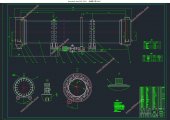150型转筒干燥机设计(含CAD零件图装配图)(任务书,开题报告,论文说明书13000字,CAD图纸5张)
摘 要
论文的主要内容是介绍150型转筒干燥机设计过程。详细写了转筒干燥机的核心部件转筒以及其附属配件托轮、挡轮、滚圈和齿圈的设计计算和材料选择过程,并介绍了其他组成部分的选型以及实用性和经济性分析。
本文干燥的物料是脱硫石膏,主要成分和天然石膏相似,在工业生产中有广泛的应用,脱硫石膏本身是电厂脱硫产物,故原材料成本低廉,干燥后产品附加值升高,适合大规模生产再利用。对节能减排资源再利用以及环保有着积极的作用。
与此同时,此次设计还尽可能完善了其在经济性以及实用性上的要求。创新性的解决了由于物料本身粘性大而导致其易粘附在筒壁的问题,提高了干燥效率。并且整机抗过载能力强,筒体运行平稳,可靠性高,生产能力较强,可用于工业上连续生产。
关键词:干燥技术 转筒干燥机 脱硫石膏
Design of rotary drum dryer
Abstract
The main content of the paper is to introduce the design process of type 150 drum dryer. Detailed description of the design, calculation and material selection process of the core drum of the rotary drum dryer and its accessory parts supporting roller, stop wheel, roller ring and ring gear, and the selection of other components, practicality and economy analysis.
The dry material in this paper is desulfurized gypsum, and the main components are similar to natural gypsum. They are widely used in industrial production. Desulphurized gypsum itself is a desulfurization product of power plants, so the raw material cost is low, and the added value of the product after drying is increased, which is suitable for large-scale production. use. It has a positive effect on the reuse of energy-saving and emission-reducing resources and environmental protection.
At the same time, the design has also perfected its economic and practical requirements as far as possible. Innovatively solves the problem of easy adhesion to the wall due to the large viscosity of the material itself, and improves the drying efficiency. And the whole machine has strong anti-overload capability, with stable operation, high reliability, and strong production capacity. It can be used in industrial continuous production.
Key words: Drying technology Rotary drum dryer gypsum
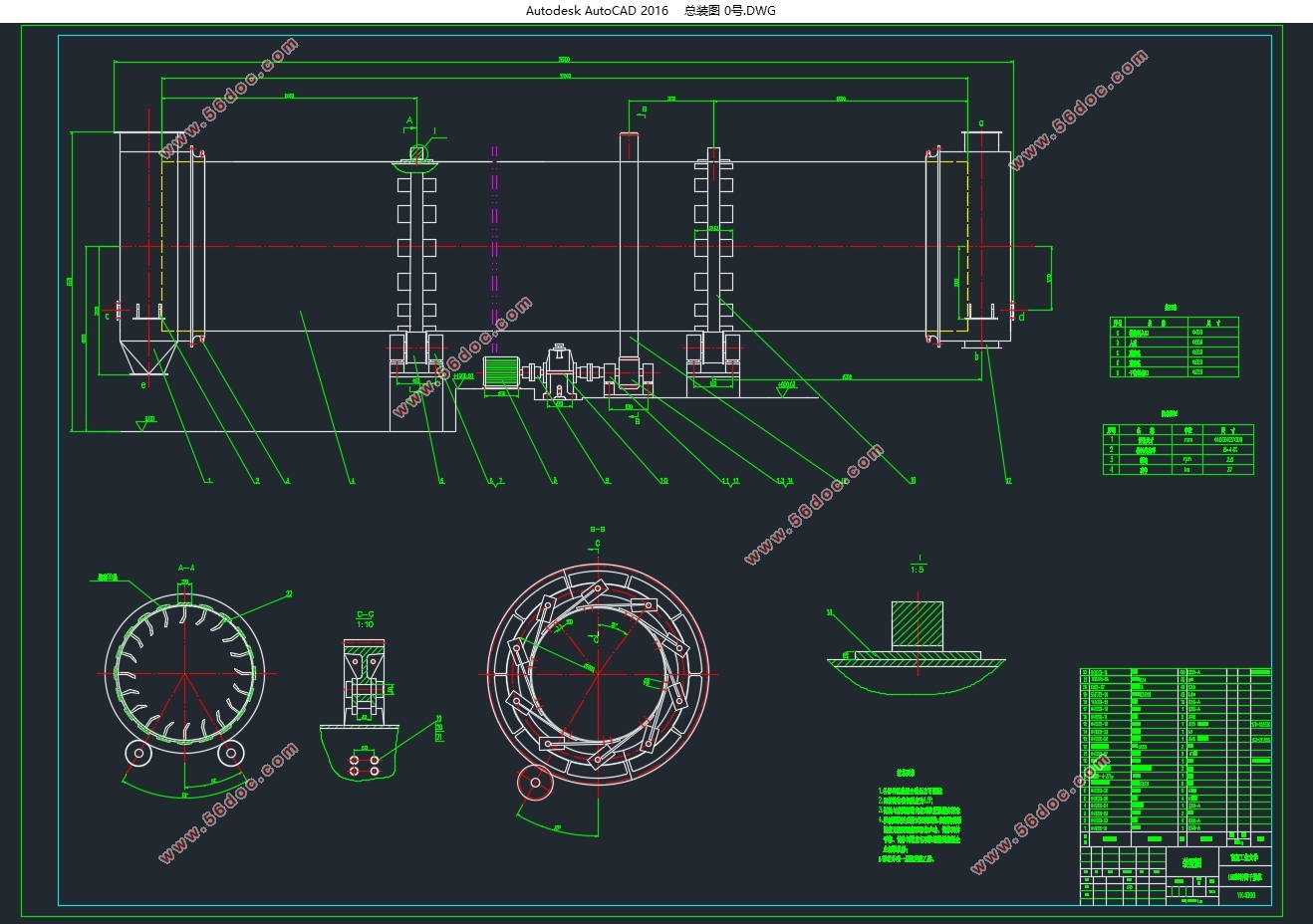
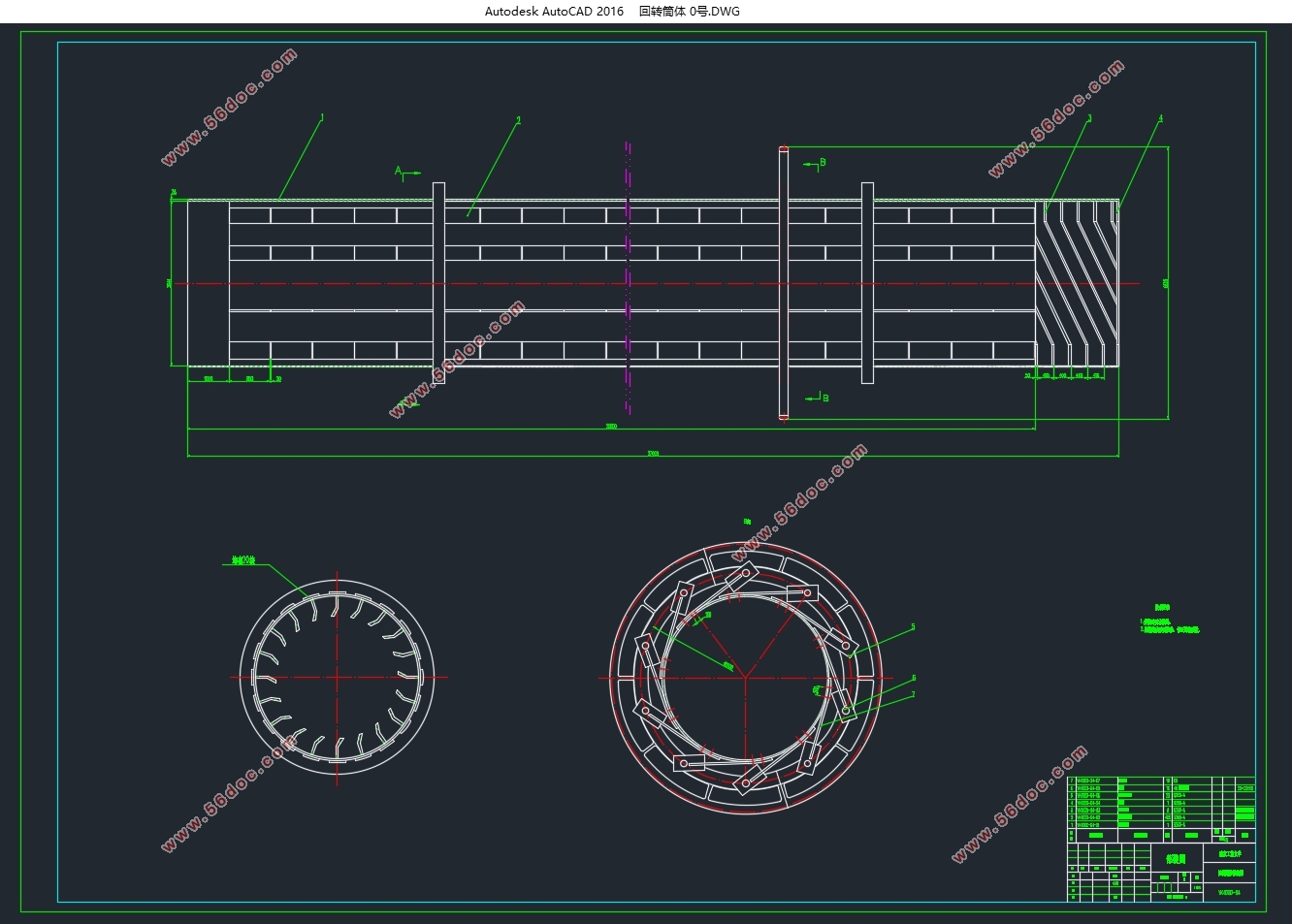
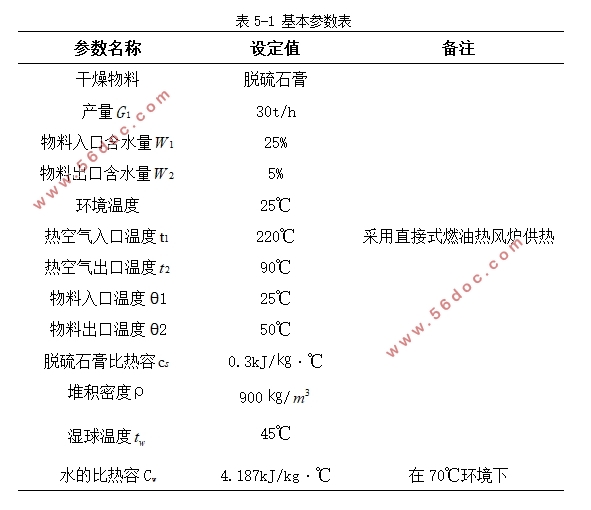
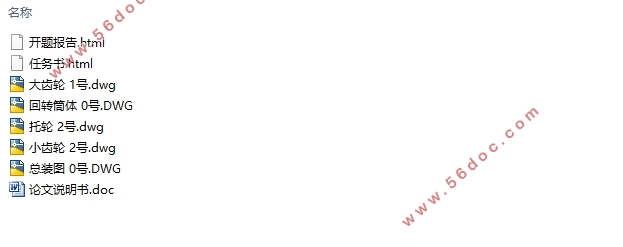
目 录
摘 要 I
Abstract II
第一章 绪论 1
第二章 干燥技术简介 2
2.1干燥技术的应用 2
2.2干燥技术的分类及特点 3
2.3干燥技术的发展与展望 4
第三章 转筒干燥机 6
3.1转筒干燥机的原理 6
3.2转筒干燥机的结构简介 6
3.3转筒干燥机的分类及特点 6
3.4 转筒干燥机的国内外现状 8
3.5转筒干燥机的未来展望 10
第四章 脱硫石膏的性能和用途 11
4.1脱硫石膏的产生 11
4.2脱硫石膏的性能 11
4.3脱硫石膏的用途 12
第五章 转筒干燥机的设计计算 13
5.1基本参数的确定 13
5.2物料衡算和热量衡算 13
5.3基本尺寸计算 15
5.4筒体设计 18
5.5抄板设计 22
5.6滚圈设计 23
5.7托轮及其轴承计算 25
5.8挡轮及其轴的设计 27
5.9 传动装置的设计 29
5.10其他配件的选型 32
5.11使用注意事项 32
5.12本产品经济性分析 32
结语 34
参考文献 35
致 谢 37
|
